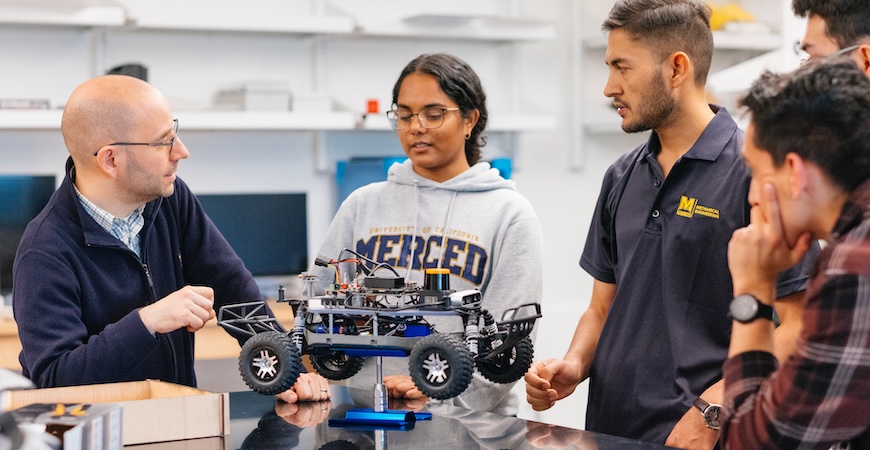
Mechanical engineering Professor Ricardo Pinto de Castro has turned a penchant for systems-level thinking and a longtime love of cars into a climate-resilient research mission.
From electric vehicles (EVs) traversing San Francisco's busiest streets to electric appliances such as induction stovetops and heat pumps becoming ubiquitous in homes, modern American society is transitioning away from fossil fuels to electric power from renewable energy sources, with climate change motivating even more rapid advancement.
De Castro, who also is a principal investigator at the Center for Information Technology Research in the Interest of Society and the Banatao Institute (CITRIS), has been interested in exploring how people adopt new technologies from his earliest days as a researcher.
"In undergrad, I really enjoyed opening a book and reading it from start to end," said de Castro. "I am always driven to learn why things work the way they do. If you are in academia, you have to be a curious person, because the 'why' question is very important."
De Castro holds three patents and has worked on projects ranging from electric tractors to robotic vehicles. Since joining the UC Merced faculty in 2021, de Castro has led a lab that combines power conversion with advanced control and optimization methods to achieve efficient, durable and reliable energy storage in electric and robotic vehicles. His team also explores the automation of vehicles, emphasizing safe motion planning and resilient control systems. And he advises the Bobcat Racing EV team that is designing and constructing a formula-style race car to compete in the Formula SAE competitions.
Read a full profile of de Castro's work on the CITRIS website .



